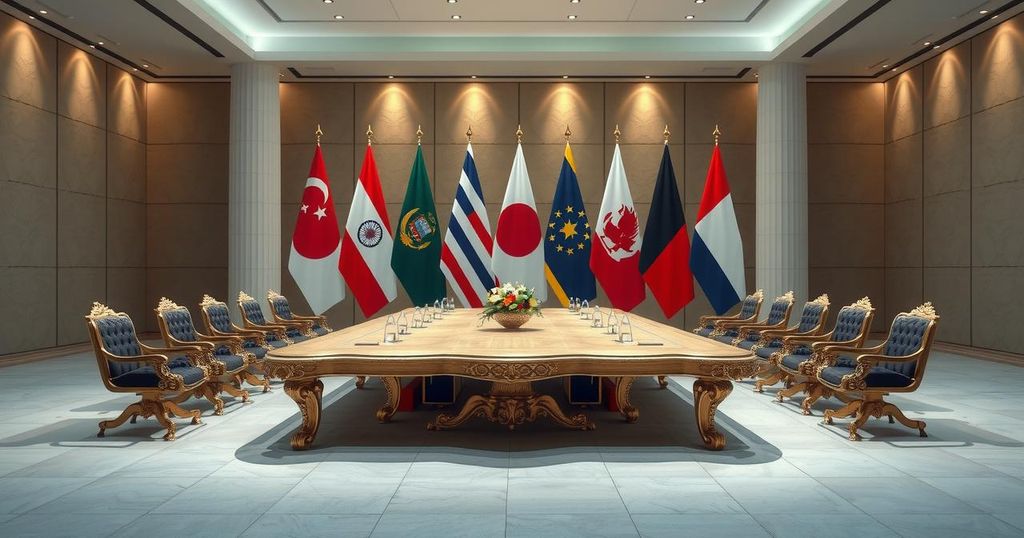Russian Foreign Minister Sergey Lavrov attended the G20 meeting in South Africa, while U.S. Secretary of State Marco Rubio opted to abstain from participation due to tensions with the host country. The meeting focuses on global geopolitical topics, including the support for Ukraine amidst Russia’s ongoing aggression. South African officials expressed the importance of dialogue despite U.S. absenteeism.
Russian Foreign Minister Sergey Lavrov attended the G20 foreign ministers meeting in Johannesburg, South Africa, on February 20, 2025. His presence at this significant diplomatic event coincides with the absence of U.S. Secretary of State Marco Rubio, who decided not to participate due to tensions between the United States and South Africa related to the latter’s perceived anti-American policies. Instead, Dana Brown, the acting ambassador to South Africa, represented the United States at the meeting.
While Lavrov’s attendance followed recent discussions between the U.S. and Russia aimed at resolving the ongoing war in Ukraine, those talks notably excluded most U.S. allies, including Ukraine itself. The geopolitical climate remains tense, especially as the anniversary of the Russian invasion approaches. Additionally, U.S. President Donald Trump has exacerbated these tensions by criticizing Ukraine’s leadership and misattributing blame for the conflict.
The G20 meetings aim to unite various countries to address important global issues, though they often reveal stark divisions regarding the Russia-Ukraine situation. South Africa, which holds the G20 presidency, expressed hopes for collaborative efforts on pressing matters such as climate change and debt refinancing, but discussions are expected to also center on geopolitical conflicts.
In his opening remarks, President Cyril Ramaphosa emphasized the need for serious dialogue amid ongoing crises, highlighting existing divergences among powerful nations on how to tackle such challenges. Rubio’s absence from the G20 could further weaken the group’s effectiveness, especially as it continues to grapple with significant divisions between member countries.
The ongoing disputes also reflect in other countries’ attendance, as U.S. Treasury Secretary Scott Bessent similarly declined to attend another relevant meeting. The Trump administration’s recent actions, including withdrawing U.S. assistance to South Africa, further illustrate the strained relationship, underscoring a shift in American foreign policy focused more on national interests than on global cooperation.
Rubio has openly criticized South Africa’s G20 presidency theme of solidarity, equality, and sustainability, arguing that such concepts prioritize diversity and climate over U.S. interests. In response to his absence, South African officials maintained that the lack of full U.S. participation does not constitute a boycott of their G20 presidency.
This article underscores the significant geopolitical dynamics at play during the G20 meeting in South Africa, particularly in relation to the ongoing conflicts involving Russia and Ukraine. The absence of U.S. Secretary of State Marco Rubio highlights the challenges faced by the G20 in achieving consensus, amidst growing tensions and diverging national interests. The upcoming discussions could either bridge these gaps or further hinder global cooperation on critical issues.
Original Source: apnews.com




